Liberal Democrat MP Manuela Perteghella posed a written question to the Ministry of Defence, asking about the independence of the UK’s nuclear deterrent and steps to reduce reliance on the United States for testing, maintenance, and missile replacement.
Her question, submitted on November 19, 2024, was as follows:
“To ask the Secretary of State for Defence, what steps he is taking to ensure the independence of the nuclear deterrent; and if he will take steps to reduce reliance on the US for the (a) testing, (b) maintenance, and (c) replacement of missiles.”
Armed Forces Minister Luke Pollard responded:
“The United Kingdom’s nuclear deterrent is completely operationally independent. Only the Prime Minister can authorise the use of our nuclear weapons, even if they are to be employed as part of a NATO response.”
Pollard added:
“We have a close and longstanding relationship with the US on all nuclear issues. One result of this close relationship is that we are able to procure certain non-nuclear components from the US, most notably the Trident II D5 missile, significantly reducing the cost of our nuclear deterrent capability.”
We previously explored this here, one of the most common myths around the system is that the United States has control over the UK’s Trident missile system, that is not the case.
The Trident missile system is housed on the UK’s four Vanguard class submarines which form the UK’s strategic nuclear missile force. Each of the four boats are armed with up to 16 Trident II D5 SLBMs, carrying up to 8 warheads each.
The Royal Navy has operated the UK’s Continuous at Sea Deterrent since 1967 when the first SSBN – or Ship Submersible Ballistic Nuclear – HMS Resolution began patrolling armed with the Polaris missile system.
In 1996 HMS Vanguard, the first submarine armed with the Trident missile system, arrived on the Clyde and took over deterrent patrol duties from the Resolution Class.
The four Vanguard-class submarines form the UK’s strategic nuclear deterrent force.
It’s often said that the UK’s Trident nuclear weapons system is not ‘independent’ or that the UK doesn’t have the ability to use the system without the US agreeing to it, in reality however that is simply not the case.
Who controls Trident?
It’s often said that the UK’s Trident nuclear weapons system is not ‘independent’ or that the UK doesn’t have the ability to use the system without the US agreeing to it, in reality the UK does retain full operational control over the system.
One common argument is that the US can simply ‘turn off’ the GPS system and therefore can stop the UK using Trident, this is also a myth, Trident isn’t guided by satellite.
The missile uses a kind of stellar sighting guidance system and inertial navigation to take a reading from the stars to work out the missile’s position and make any adjustments necessary. They do not require GPS.
One source for the confusion could be the fact that, aside from those currently deployed, the leased missiles are held in a communal pool at the US Strategic Weapons facility at King’s Bay, Georgia, USA where maintenance and in-service support of the missiles is undertaken at periodic intervals.
The missiles are jointly maintained, this is much cheaper than the UK doing it on its own and does not give the United States control over any of the weapons deployed on the submarines.
Does the system require American codes to launch?
American operated Trident missiles are controlled through the US Navy chain of command by the US President. ‘Permissive action link technology’ prevents anyone other than the president or someone he has delegated control to authorising a launch.
In 2007, the UK Government revealed that its nuclear weapons were not equipped with Permissive Action Links. Instead, the UK’s nuclear bombs to be dropped by aircraft were armed by just inserting a key into a simple lock similar to those used to protect bicycles from theft, the UK withdrew all air-launched bombs in 1998. The current UK Trident warheads can also be launched by a submarine commander with the support of his crew without any code being transmitted from the chain of command.
The British missiles are controlled through the Royal Navy chain of command all the way up to the Prime Minister. In reality the Prime Minister would make the launch decision in concert with whatever was left of the British government.
The key point here is that the British deterrent does not have permissive action link control, which means it does not rely on the use of codes to fire the system. The UK’s Trident fleet relies purely on military discipline to prevent a launch.
In summary, the UK retains full operational control, to the extent that the US could not stop the UK from using the system. A Freedom of Information request proving that the United Kingdom has full operational control over its Trident missile system can be downloaded here.
At the UK Defence Journal, we aim to deliver accurate and timely news on defence matters. We rely on the support of readers like you to maintain our independence and high-quality journalism. Please consider making a one-off donation to help us continue our work. Click here to donate. Thank you for your support!



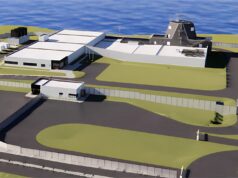
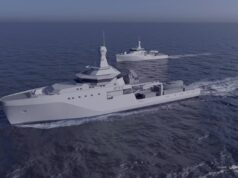
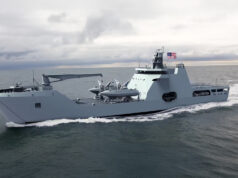




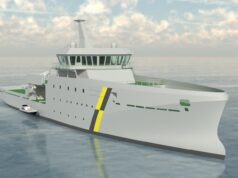

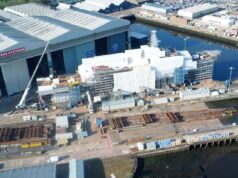

A favourite story concerning our independent nuclear deterrent I heard some years ago centred on the ‘launch codes’. A British journalist on assignment in the U.S. noticed the presence of an American official who followed the then President around carrying what looked like a small suitcase. He discovered this ‘suitcase’ contained a device that would send launch codes to U.S. forces to permit the immediate use of nuclear weapons. On returning to the U.K. this journalist approached the MoD and enquired about the U.K.’s launch codes; how were these sent to our submarines? ‘We don’t have any launch codes’ came the reply. ‘Well, in that case what’s to stop a captain going mad and just launching them himself?’ ‘We don’t have people like that in our navy!’ came the horrified reply. Rumour has it the submarines have to tune into Radio Two ‘to make sure all is well back in Blighty’. When he heard this broadcaster Laurie Taylor commented ‘After that why not just launch them anyway’.
Well it would not be Radio 2 as it is broadcast on medium wave/VHF and unlikely to be received in the mid Atlantic. The BBC World Service broadcast on shortwave however.
It’s radio four that controls Britains nuclear weapons 😀
I assumed it was joke Bob.
Try The Home Service and then Radio 4 and a particular news program.
There used to be a fax machine involved in the play j commands! It isn’t now. I’m not joking.
Try The Home Service and then Radio 4 and a particular news program.
There used to be a fax machine involved in the play j commands! It isn’t now. I’m not joking.
The story I liked best comes from the 1960s when the cabinet secretary was asked how the Prime Minister could authorise the nuclear launch if he was being driven in his official car to some public event or other. This was long before the common use of personal mobile phones. The answer came back that the driver would have to stop at a public call box of which there were many. The next question was should the driver be issued with change for the phone. I don’t think that will be necessary, came the response, the Prime Minister can always reverse the charges.
How that’s a real thing and not a Monty Python sketch I will never know.
I’ve read that.
The other thing regards call boxes is that with the Telephone Preference Scheme, in which in wartime phones would be disconnected to prioritise official and military users, it came out that Public Telephone Boxes were classed as Cat A, and wouldn’t be disconnected.
A home owner discovering their homes phone was also Cat A would mean that the premises were earmarked in some way
Lovely Jon. Thanks. We have to find ways to cheer ourselves up.
The briefcase is called the ‘nuclear football’
I believe that it was supposed to be listening to Radio 4 because it was on “long waveâ€. Lack of any contact for a set period would result in listening to the “Today Programmeâ€. Still we will never really know, well I hope not.
I seem to recall that the “nuclear codes†that POTUS controls are for the “land based†launchers, after an exercise in the 70’s/80’s when a drill showed that a larger than expected amount of officers with responsibility failed to authorities the launch, but then again maybe it was from the movie “Wargames†with WPORA playing Tic, Tec, Toe.
Either way, another pointless question from a Liberal Democrat nobody.
Great film that. The machine was Joshua.
The nuclear “football” goes back to the 1950s and was a creation of the Eisenhower administration. It has the launch codes for all elements of the nuclear triad.
The US put codes on its trident submarines in the 90’s but we choose not to do it.
The nuclear football.
Always assumed the Radio 2 story was factual and not just hearsay.
The process for authorising UK Trident weapons is well set out in the book The Secret State by Peter Hennessy. Yes listening for the Today programme on Radio 4 is part of the process of checking whether the UK has been wiped out. Once the senior officers on the boat have checked then they would follow the instructions in the letter of last resort from the Prime Minister kept in a safe in the sub. The two senior officers on the boat can fire if they decide to do so. There are no permissive action links in the UK firing chain. No one could stop the crew on the boat from firing if they choose to do so.
But I think this story has missed the main point of the MP’s question. They were really asking about our ability to maintain the whole Trident system. That IS dependent on US support. If the US withdraw that support we have no Trident. Could we replace it with a home grown system? Probably, but it would be an enormous national endeavour and it would take time.
Why is the relevant now? Well perhaps people are worried that the incoming US President might not care too much about a UK nuclear deterrent. After all he is said to have been unaware that the UK even had nuclear weapons when he was last President. Also the Nassau deal that Harold MacMillan signed to gain access to Polaris and later Trident gave the US access to Diego Garcia. Perhaps people are worried that the new US President might not look kindly in the deal with Mauritius?
Good point re Diego Garcia.
Sadly our current batch of politicians, on all sides of the house, have little to no idea of the history behind the agreement.
You need to understand history to know why we do what we do.
You’d think that they’d have the sense not to antagonise Trump unnecessarily even if they didn’t understand the history. We have no strategic interest in ceding territory to a Chinese client state and yet are determined to do so anyway even at the risk of incurring the wrath of the world’s most powerful nation.
The source of the statement that Donald Trump didn’t allegedly know that the UK had nuclear weapons is a book by John Bolton who Trump fired. The book contains many assertions by Bolton that have been discredited and disproven. For some reason, perhaps because he drools with hatred over Trump, John Bolton is considered a serious authority on national security matters by the Times and other UK media outlets whereas he has no audience in the US where he is regarded as somewhat unhinged.
Being somewhat unhinged isn’t usually any sort of barrier to being an authority on national security matters, is it? Or even holding the highest public office for that matter. I always thought we left it to the submarine captains, because unlike our Prime Ministers they will have been vetted to ensure only the right amount of insanity.
Wasn’t there an American pilot who flew US nuclear bombers and who dared ask, if we get the order how will we know if the President has gone insane? If I recall correctly he was immediately fired and the question was never answered.
Well said. Bolton is very odd and you can tell he seethe with hatred for Trump. That hatred makes him come across as not credible and a man with an agenda. Scary dude.
Trump seethes with hatred for lots of people, you must have heard him? how unhinged is he in comparison to Bolton?
I don’t think it would be that big an endeavour. The French developed M51 for EUR 4 billion and would be happy to sell us the plans. €4 billion EUR is less than the cost of building tunnels from Old Oak Common to Euston for HS2.
It’s about 18 hours of UK government spending.
We have previously been in the position where US support for our missile system (Polaris) was ended because the US was replacing it with Poseidon. Having to maintain the Polaris system ourselves for about a decade before Trident replaced it was a somewhat expensive undertaking but hardly an insurmountable challenge.
Would the missiles actually launch successfully once the key is turned? I seem to remember that the last two attempts failed, but we were reassured “It will be all right on the night”. Hum – how much does this deter Russia?
You are correct. The best part of that article was this gem of a line:
“Test-fired missiles are not armed with their nuclear warheads.”
The missiles were hampered by the test devices onboard, a real launch would have succeeded. trident D5 has been tested more than any ballistic missile in history and has the best record. The Royal navy has fired them on multiple occasions with no incidents.
While is probably true that operational missiles would have fired, it’s possible failure due to the test equipment masked further issues. However, the test wasn’t really to check that the missiles were good, just to see if the sub was good. I thought passing the more limited test while failing on the bigger picture should have been cause for a retest. We spend so much money on CASD, surely the test cost pales.
Wasn’t really the case was it? both missiles launched and cleared the boat! One was well on its way when it started to drift of course the range safety officer aborted it.the other failed to ignite for some reason,im sure by now they know because it would have top priority even for the cousins as they use the same pool of missiles.
I wonder how many times a year this has to be explained to our political masters, sorry mistresses, sorry oh…whatever they are..
I’m getting fed up with it as well, it bate for the Russian Trolls who will all be on here saying how useless Trident is because of the test failure without mentioning the dismal success rate of SARMAT Two which managed to take out the entire launch facility on its last “testâ€
Silly season again, offcourse Trident can be independently launched, it woukd be an amazingly shit secondary strike capability for the US and the UK if it couldn’t.
GPS didn’t even exist when Trident was developed, why would it use it as a guidance system?
No missile in the US or UK arsenal uses GPS for guidance because GPS can be easily jammed. Every weapon we have uses inertial guidance.
The real weakness in Trident for the UK is having to rely on US stockpiles and maintenance. This made sense in the 80’s but makes no sense now.
If we are going to spend £100 billion on a gucci nuclear weapon system we really should spend the extra £4 billion to develop our own missile. We can continue to work on warheads with the US and testing with the French.
Given the ongoing cluster f**k that is the USAF Sentinal program it will probably save us money developing our own SLBM based on M51 than participating in the eventual Trident E6 program that is likely to be Lockheeds next cash cow after F35.
Correct me if I am wrong but if a submarine can safely submerge and traverse the polar ice cap using an inertial guidance system while an ICBM uses a stellar guidance system in conjunction with inertial guidance GPS is unnecessary.
Yes that’s correct, gps is not involved in trident in anyway other than navigation updates which can also and are also done by hand.
I’m a real war GPS won’t last 5 minutes. No weapon relays solely on it for this reason.
It is alright saying the The Nuclear strike is back on track Not we saw a few months ago when Vanguard fired missile and it flew 500 yds and dropped into the sea. What we need to sort out are ballistic missiles we haven’t got any WE CANNOT GO STRIAGHT TO NUCLEAR OPTION . Germany now looking at Air Shelters There are currently only 579 public shelters in Germany – which has a population of 84.4 million – and they only have enough space for around half a million people.
Ralph Tiesler, the head of the Federal Office for Civil Protection, has warned that it could take an entire generation to build a new bunker network, creating a need for quicker solutions. They have 579 more than UK we have NO LAYERED AIR DEFENCE we have Two Euro Fighters to cover the South of England No anti Ballistic missiles ..UK would go into complete melt down if Russia Fired any missiles over London in the next couple on Months even 188 Drones sent over we have Open Air space and nothing to help the Public or shoot down drones
Just because our leaders and elites look like idiots and talk like idiots don’t let that fool you, they really are idiots.
The UK has never had an independent nuclear strike option. The Trident option operates at Donald Trump’s option… The nuclear submarine reactors also are American property… And every UK nuclear weapon was basically designed and tested in the United States…. Look it up. Basically every UK LOL. Nuclear weapon was tested in the United States underneath their soil.. so I’m pretty sure they had no idea what was involved with it… Time to grow up. It might be time for the UK. Go in with the French and see how that works out.